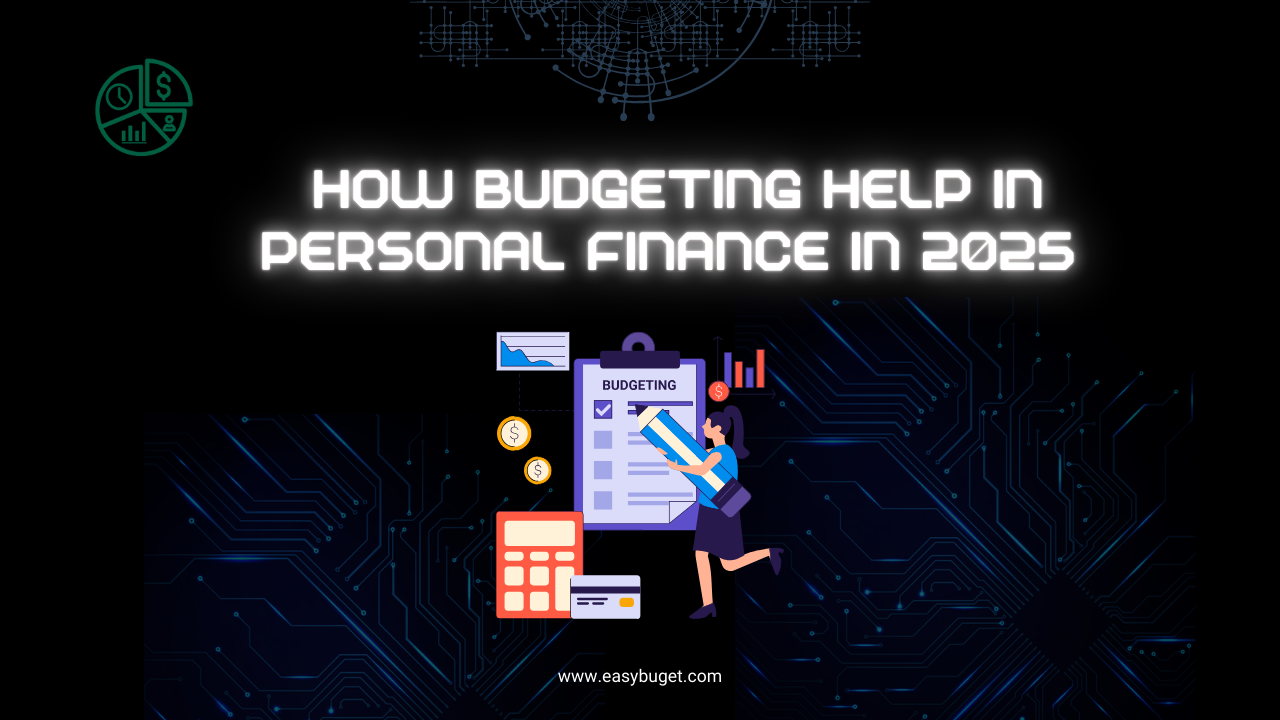Budgeting is a fundamental aspect of personal finance that empowers you to take charge of your money and plan for the future. It is not just about tracking your expenses, it is about understanding your financial habits, making informed decisions, and achieving your goals. This blog explores what budgeting is, why it is important ,how budgeting helps in personal finance, also provides a comprehensive step-by-step guide to create and maintain an effective budget.
What is a Budget?
The Budget is defined as “a plan that outlines how to spend money”.
At its core, a budget is a detailed plan that outlines your expected income and expenses over a specific period, usually a month. It helps you to allocate your resources effectively, ensuring that every dollar serves a purpose. A budget acts as a financial blueprint, helping you to prioritize your spending, save for the future, and avoid unnecessary debt.
Think of a budget as a tool that gives you clarity and control over your finances. It allows you to:
- Understand Your Financial Standing: Know exactly where your money comes from and where it goes.
- Plan for the Future: Allocate funds for emergencies, investments, and long-term goals.
- Stay on Track: Avoid impulsive spending and stick to your priorities.
What is the budgeting process?
The budgeting process involves more than just listing income and expenses. It’s a dynamic system that requires regular assessment and adjustments. Here are the key components:
- Establishing Financial Goals: What do you want to achieve? Goals could range from building an emergency fund to saving for a new car or reducing debt.
- Tracking Income and Expenses: Analyze your cash flow by keeping tabs on earnings and spending habits.
- Setting Spending Limits: Assign a specific amount to each expense category based on priorities.
- Reviewing and Adjusting: Periodically evaluate your budget to ensure it aligns with your goals and current circumstances.
How budgeting helps in personal finance:
Budgeting is an essential skill that benefits everyone, regardless of income level. Here are some reasons why budgeting is so important:
1. Avoid Overspending
A budget keeps you mindful of your spending limits, reducing the risk of living beyond your means. By setting boundaries, you can ensure that your expenses do not exceed your income.
2. Achieve Financial Goals
Whether it’s saving for a dream vacation, buying a home, or retiring early, budgeting helps you allocate resources toward your goals systematically.
3. Reduce Stress
Financial uncertainty can be a significant source of stress. A budget provides clarity and control, giving you peace of mind.
4. Prepare for Emergencies
Life is unpredictable, and unexpected expenses can arise at any time. Budgeting helps you build an emergency fund to tackle unforeseen financial challenges.
5. Manage Debt Effectively
A budget ensures that you allocate funds toward paying off existing debts while avoiding new ones. It’s a key tool in becoming debt-free.
5 Simple Steps to Create and Use a Budget
Creating and using a budget may seem difficult, but breaking it down into manageable steps makes it easier. Here’s a detailed guide:
Step 1: Estimate Your Monthly Income
Start by calculating your total income. Include all sources such as:
- Salaries and Wages: After-tax income from your job.
- Side Hustles: Earnings from freelance work or part-time gigs.
- Other Sources: Rental income, government benefits, or investments.
Knowing your exact income is the foundation of a successful budget.
Step 2: Identify and Estimate Your Monthly Expenses
List all your expenses, separating them into two categories:
Fixed expenses:
- Rent or mortgage payments.
- Insurance premiums.
- Loan repayments.
- Utility bills.
Variable expenses:
- Groceries.
- Entertainment.
- Dining out.
- Transportation.
Analyze past bank statements or use a budgeting app to ensure your estimates are accurate.
Step 3: Compare Your Total Estimated Income and Expenses
Subtract your total expenses from your income. This gives you a clear picture of your financial situation:
- Surplus: If your income exceeds your expenses, allocate the surplus to savings, investments, or paying off debt.
- Deficit: If expenses are higher than income, identify areas to cut back or explore ways to boost your income.
Step 4: Track Your Spending
Tracking your spending helps you stay within budget. Throughout the month, record every purchase and payment. Tools such as budgeting apps, spreadsheets, or even a notebook can make this process easier.
At the end of the month, compare your actual spending with your planned budget. This step highlights any discrepancies and provides insights for future adjustments.
Step 5: Stick With It
Consistency is key to successful budgeting. Setbacks are natural, but the goal is to keep improving. Celebrate small wins, like meeting your savings target or reducing unnecessary expenses. Over time, budgeting becomes a habit that pays off immensely.
Make Adjustments if Needed
A budget is not set in stone. Life circumstances change, and so should your budget. Regularly review and revise it to reflect:
- Changes in income.
- New financial goals.
- Unexpected expenses.
For instance, if you receive a salary increase, consider allocating a portion to investments or an emergency fund.
Here is the detailed pdf on how budgeting help in personal finance in 2025 pdf
Final Thoughts
Budgeting is a powerful tool that puts you in the driver’s seat of your financial journey. By creating and sticking to a budget, you can reduce stress, achieve goals, and build a secure financial future. Remember, the key is to start simple and remain consistent. With time and practice, budgeting will become second nature, and you’ll enjoy the rewards of financial stability and success.
Please subscribe Easy Budget to stay updated about our latest blogs!


1 thought on “How budgeting helps in personal finance in 2025 pdf”